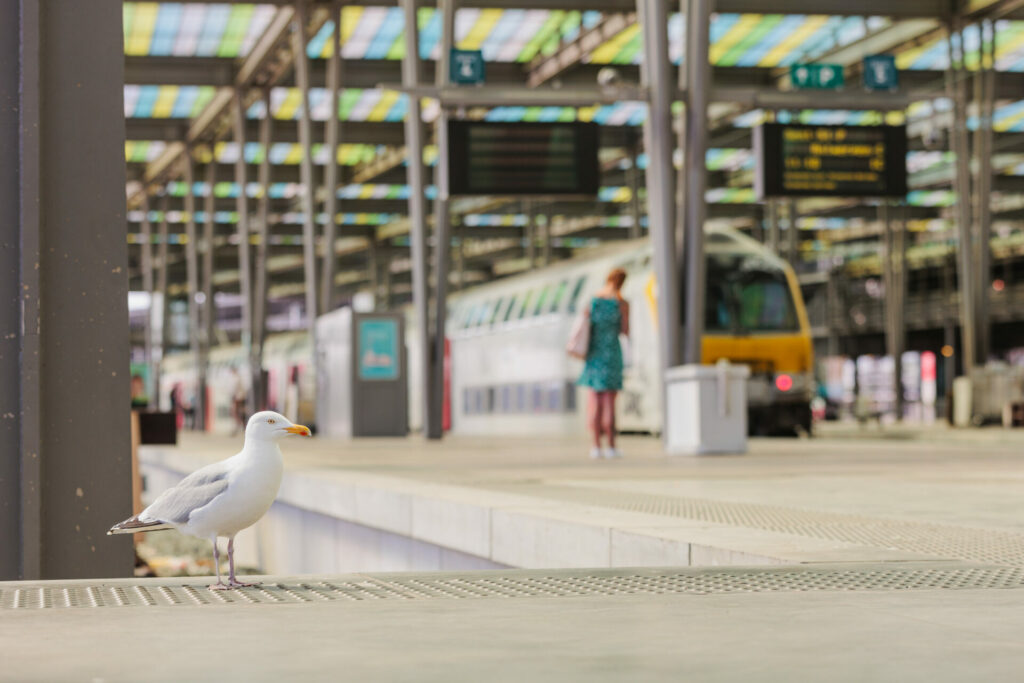Weekday train passenger numbers have rebounded to 90% of pre-pandemic levels this summer, building on increases recorded last year, the SNCB announced in a press release on 2 September.
Weekend travel has also become increasingly popular, especially for trains offering fast connections to the Belgian coast.
“We are clearly on an upward slope in terms of summer passenger numbers,” notes SNCB spokeswoman Marianne Hiernaux. “We had already seen progress last year.”
Last summer, SNCB reached 65% of the passenger numbers recorded in 2019. The operator has now reported that the number of passengers has increased again by around 25%. On the weekends, there were even higher numbers than recorded before the pandemic. Compared to the summer of 2019, there were 12% more weekend travellers.
Coastal getaways leading the surge
The new Côte-Express trains, which connect major Belgian cities with coastal tourist destinations on the North Sea, proved to be a major hit. These trains left from 50 stations per week and 62 stations during the weekend, offering direct trains to the Belgian coast without the need for stopovers.
This summer, two new direct routes were established between Liège and La Panne and Antwerp and Blankenberge. In total, SNCB ran 2,550 additional trains this summer alongside its traditional offering.
The Belgian rail operator has also witnessed an uptake in demand for international rail travel. Between July and August, compared to the same period in 2019, there was a 10% increase in the number of travellers connecting to cities outside of Belgium.
Related News
- Belgium's biggest consumer: SNCB feels the force of the energy crisis
- Extra trains going to Belgian coast on Wednesday and Thursday
SNCB is also pleased with the increasing popularity of “Duo Tickets”, which allows two passengers to travel for the price of one during the summer. In total, 7 million journeys were booked using this form of ticket since April.
Despite the promising statistics, SCNB still warns that 2022 “will remain difficult” due to high energy costs, inflation, and a drop in the level of season ticket subscriptions, which has not reached pre-pandemic levels.

